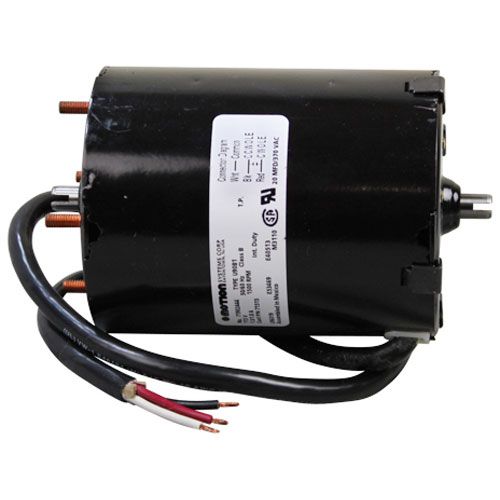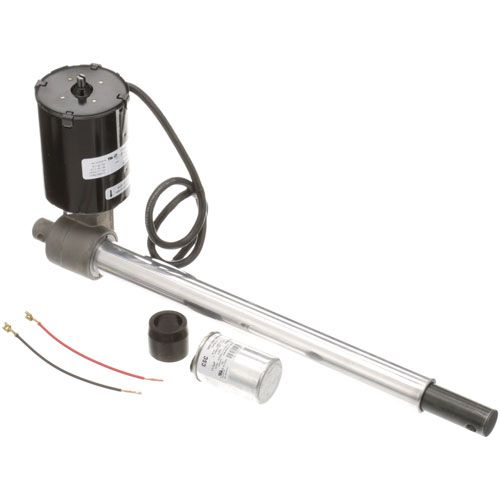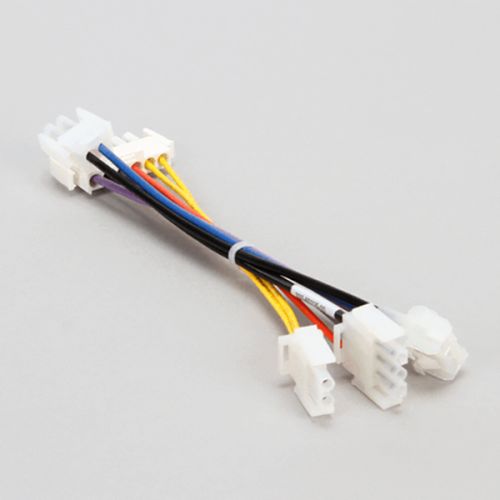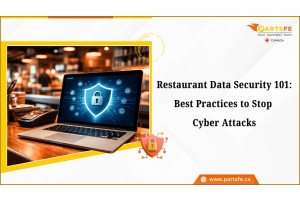Training at Scale: How to Grow Restaurant Teams Without Losing Brand Integrity
Growing a restaurant team while maintaining the essence of your brand is a delicate balance. As your business expands, training new staff consistently becomes critical to delivering the same exceptional customer experience that defines your brand. Without a scalable training strategy, you risk diluting your core values and service quality. This guide explores practical methods to train restaurant teams efficiently at scale, ensuring every team member embodies your brand’s culture and standards. From leveraging technology to creating repeatable training programs, you’ll learn how to grow your workforce confidently without compromising the unique identity that sets your restaurant apart. Whether you’re opening new locations or expanding your existing team, mastering training at scale is key to long-term success.
Why Brand Integrity Matters in the Restaurant Industry
In the highly competitive restaurant industry, brand integrity is crucial for building trust, ensuring customer satisfaction, and driving long-term success. Your brand is the promise you make to your customers, and maintaining it consistently affects every aspect of your business. Here’s why brand integrity matters in the restaurant industry:
-
Customer Trust and Loyalty: Consistent quality and service reinforce customer trust, encouraging repeat visits and positive word-of-mouth.
-
Brand Identity: A strong brand identity sets your restaurant apart from competitors in a saturated market.
-
Employee Alignment: Clear brand values guide employee behavior, creating a cohesive team focused on delivering a unified customer experience.
-
Operational Consistency: Maintaining brand standards ensures uniformity in food preparation, service protocols, and ambiance across all locations.
-
Reputation Management: Brand integrity helps prevent negative reviews and customer complaints that can harm your restaurant’s public image.
-
Marketing Effectiveness: A trustworthy brand makes promotional efforts more impactful and helps attract new customers.
-
Financial Performance: Restaurants with strong brand integrity typically experience higher customer retention, increased sales, and improved profitability.
-
Adaptability: A well-defined brand can evolve while staying true to core values, helping the restaurant navigate market changes without losing identity.
Maintaining brand integrity is essential for creating memorable dining experiences that keep customers coming back.
Read this article on the solo dining surge in Canada to explore how this trend is reshaping restaurant strategies.
The Challenge of Scaling Restaurant Teams Without Compromising Quality and Brand Values
Scaling a restaurant team isn’t just about hiring more people—it’s about growing in a way that maintains the quality of service, food, and customer experience that defines your brand. This is particularly challenging in the restaurant industry because every team member, from kitchen staff to servers, directly impacts how your brand is perceived.
When scaling quickly, restaurants face several common challenges:
-
Inconsistent Training: With multiple new hires across locations, it’s hard to ensure everyone learns and applies the same standards. Variations in training quality lead to inconsistent guest experiences.
-
Diluted Brand Values: Rapid hiring can weaken the original team’s commitment to the brand’s core principles if new employees don’t fully understand or embrace them.
-
Operational Complexity: Managing schedules, workflows, and communication across several locations adds layers of complexity that can overwhelm existing systems.
-
Increased Turnover: Fast growth often results in higher staff turnover, causing disruption and increased training costs.
-
Maintaining Food Quality: Scaling kitchens often means new cooks who need to match the original recipes and plating standards to keep consistency.
Successfully scaling means addressing these challenges head-on with a structured training system, strong leadership, and clear communication channels. Without this, the brand risks losing the very elements that made it special.
How to Train Restaurant Teams at Scale Without Losing Brand Integrity: A Step-by-Step Guide
Growing your restaurant teams rapidly without sacrificing your brand’s identity requires a structured approach. Below are six essential steps to help you scale effectively, maintain consistency, and protect the core values that make your brand unique.
Step 1: Define Core Brand Standards to Protect Your Restaurant’s Identity
Before expanding your team, it’s essential to clearly outline what makes your restaurant unique and what standards must remain unchanged. Defining these core brand standards serves as the foundation for all training and operations, ensuring every employee understands the brand’s promise and how to deliver on it.
Key Steps:
-
Create a Brand Integrity Guide: Document your mission, values, and operational standards in detail to serve as the blueprint for all employees.
-
Document Signature Recipes: Ensure recipes and plating instructions are clearly outlined to maintain consistent food quality.
-
Define Service Principles: Specify how staff should engage with guests to reflect your brand’s personality and values.
-
Set Hygiene and Cleanliness Standards: Establish clear expectations for staff appearance and workplace sanitation.
-
Make the Guide Digitally Accessible: Provide easy access to this guide for all employees across locations to reference anytime.
By establishing clear expectations upfront, you prevent drift in service quality and preserve what your customers love about your brand, no matter how fast you grow.
Step 2: Develop a Scalable Training Program That Ensures Consistency Across Locations
To grow your restaurant teams without compromising standards, you need a structured and scalable training program. This program should work equally well whether you’re training in one kitchen or across dozens of sites.
Key Components:
-
Standardized Onboarding Checklists: Develop clear checklists customized by role to guide new hires through essential training steps.
-
Video Modules and E-Learning Courses: Use engaging, consistent digital content to deliver key brand messages and procedures.
-
Hands-On Shadowing with Experienced Staff: Allow new employees to learn directly from skilled team members in real-time situations.
-
Microlearning Refreshers: Provide short, focused updates to reinforce training on new menus or policies regularly.
-
Ongoing Training Schedules: Establish continuous learning opportunities to keep skills sharp and standards high.
-
Leverage Learning Management Systems (LMS): Use digital platforms to distribute training content, track progress, and ensure completion.
This approach helps new hires quickly master recipes, service protocols, and safety procedures while reinforcing brand expectations.
Step 3: Empower Managers and Leads as Brand Integrity Champions
Managers and team leads play a crucial role in maintaining standards on the ground. They are the frontline coaches and culture carriers who translate training into daily practice.
Focus Areas for Leadership Training:
-
Techniques That Encourage Development: Teach managers how to coach their teams rather than just direct them.
-
Effective Communication Skills: Train leaders to clearly communicate brand expectations and operational goals.
-
Identifying and Addressing Performance Gaps: Equip managers to recognize issues early and provide constructive feedback.
-
Promoting Accountability and Positive Morale: Foster a culture where team members take responsibility and feel motivated.
-
Handling Operational Challenges: Prepare leaders to manage day-to-day problems without compromising standards while reinforcing brand values.
Well-trained managers multiply your brand’s consistency across multiple locations.
Step 4: Embed Brand Integrity Into Everyday Operations
Maintaining brand integrity is a continuous process that needs to be part of daily routines and workflows.
Daily Practices to Reinforce Brand Values:
-
Conduct Pre-Shift Huddles: Start each shift with brief meetings emphasizing a key brand principle or operational focus.
-
Implement Recognition Programs: Reward employees who exemplify brand standards to encourage positive behavior.
-
Review Guest Feedback Regularly: Share customer comments with staff to highlight successes and identify improvement areas.
-
Use Mystery Shoppers or Brand Audits: Perform regular evaluations to catch inconsistencies and provide corrective actions.
-
Encourage Team Involvement: Make every team member responsible for upholding the brand’s reputation.
These routines keep your team motivated and aligned with your brand’s identity every day.
Step 5: Leverage Technology to Streamline Training and Maintain Standards
Technology is key when scaling across multiple sites to ensure everyone receives the same training and information.
Recommended Tools:
-
Learning Management Systems (LMS): Centralize training materials and enable on-demand access for employees.
-
Scheduling and Communication Apps: Coordinate shifts efficiently and provide timely updates to teams.
-
Performance Tracking Software: Monitor training progress and on-the-job performance to identify gaps.
-
Digital Knowledge Bases: Provide quick reference to standard operating procedures, recipes, and policies.
Using technology enhances efficiency, provides real-time insights, and ensures your brand standards are accessible at all times.
Step 6: Hire and Develop Teams That Embody Your Brand Values
Hiring quickly is necessary, but hiring right is crucial for preserving brand integrity during growth.
Hiring and Development Tips:
-
Assess Brand Fit in Interviews: Evaluate candidates based on how well they fit your brand’s values and service philosophy.
-
Prioritize Internal Promotions: Retain institutional knowledge and motivate employees by advancing from within.
-
Encourage Feedback and Growth: Encourage open communication and ongoing professional development.
-
Celebrate Top Performers: Recognize and reward team members who consistently deliver on brand promises.
-
Invest in Ongoing Development Programs: Support employee growth to maintain high standards as your team expands.
By building a team that naturally lives your brand, you ensure consistency and quality through every growth phase.
Check out this article on how digital menu boards are transforming restaurants to see how this technology supports scalable growth.
Final Thoughts
Successfully training restaurant teams at scale without losing brand integrity requires a clear vision, consistent standards, and a strategic approach to onboarding, leadership, and daily operations. By defining your core values, leveraging technology, empowering managers, and fostering a team aligned with your brand, you can confidently grow your workforce while preserving the unique qualities that make your restaurant stand out. With the right steps in place, scaling your team becomes an opportunity to strengthen, not dilute your brand’s soul. Ultimately, investing in your people and processes ensures that every guest experiences the same exceptional service, regardless of your growth. This commitment to consistency will fuel long-term success and customer loyalty.
Want to keep your restaurant equipment running like new? PartsFeCA offers top-quality restaurant equipment parts, including dishwasher parts, fryer parts, griddle & grill parts, ice machine parts, and oven parts from top brands like Hobart, Vulcan, and True. Keep your kitchen running smoothly and ensure your operations stay efficient and consistent every step of the way.
FAQs
How can I maintain my restaurant’s brand identity while expanding my team?
Maintaining brand identity while expanding requires clearly defining your core brand standards, creating consistent training programs, empowering managers as brand champions, and embedding brand values into daily operations. Technology tools can also help ensure uniform training across all locations.
What are the best strategies for training restaurant staff at scale?
Effective strategies include standardized onboarding checklists, e-learning modules, hands-on shadowing, ongoing refresher courses, and utilizing learning management systems (LMS) to track progress and consistency.
How do I ensure consistent service quality across multiple restaurant locations?
Consistency can be achieved by developing clear operational standards, regularly auditing brand compliance, leveraging technology for communication and training, and empowering local managers to enforce brand standards daily.
What are common challenges when training restaurant teams at scale?
A: Challenges include inconsistent training delivery, diluted brand standards, high employee turnover, difficulty monitoring remote locations, and maintaining engagement during rapid growth.











